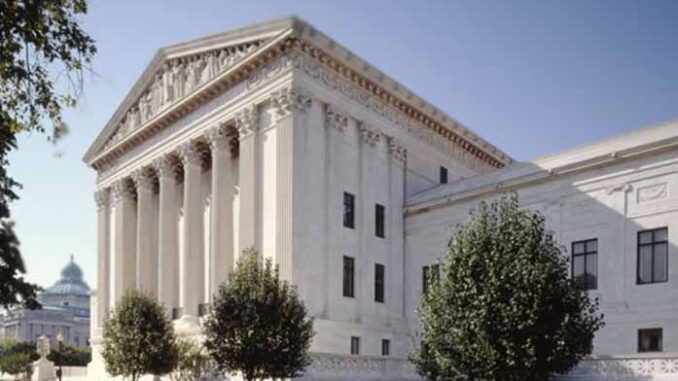
PHOENIX, AZ – On Friday, the U.S. Supreme Court agreed to hear a petition filed by a coalition of 13 states including Arizona to defend the Public Charge Rule, which ensures that noncitizens are able to financially support themselves in order to become U.S. citizens or to obtain green cards.
The states are asking the Supreme Court of the United States (SCOTUS) to allow them to intervene in a lawsuit challenging the policy after the Biden Administration abandoned defense of the rule earlier this year.
Joining Arizona are attorneys general from the states of Alabama, Arkansas, Indiana, Kansas, Louisiana, Mississippi, Missouri, Montana, Oklahoma, South Carolina, Texas, and West Virginia.
Previously, SCOTUS granted review of a case involving the same issues. But, after SCOTUS agreed to hear the case, the Arizona Attorney General’s Office (AGO) claims the Biden Administration abruptly shifted course.
The AGO alleges that the Biden administration broke “established norms” and “sprung an unprecedented, coordinated, and multi-court gambit to dismiss all pending cases pursuant to a settlement.”
For over a century, Congress has had a Public Charge requirement in one form or another. Under existing federal immigration law, noncitizens are not eligible to receive a green card if they are reliant upon government assistance, otherwise known as a “public charge.” In 2019, the Department of Homeland Security (DHS) created a rule that expanded the definition of “public charges” to include anyone who received certain government benefits (like Medicaid or food stamps) for more than 12 months over a three-year period.
The states argue that they have a significant interest in upholding the Public Charge Rule because it reduces demand on already over-stretched government assistance programs. The federal government only pays a portion of the costs involved in many of the programs at issue, therefore increasing the strain on over-stretched state assistance programs. It is estimated the rule will save the states $1.01 billion annually in direct payments. For example:
- In 2019 Arizona spent $3,059,000,000 on Medicaid benefits. Increasing the number of Medicaid participants would increase the State’s spending on Medicaid (the costs of which typically exceed State general fund growth) and would require the State to make budget adjustments elsewhere.
- Arizona paid $85 million in maintenance-of-effort costs for Temporary Assistance to Needy Families (TANF) programs in 2019. TANF resources are limited. In 2016, less than a quarter of eligible impoverished families received this assistance.
- States incur administrative costs for each Supplemental Nutrition Assistance Program (SNAP) recipient. For FY 2016, Arizona paid $77,730,088 in administrative costs for administering SNAP. By admitting aliens who are unlikely to depend on this resource, the State will save money that would have otherwise gone to fund administrative costs for aliens who would depend on the program.
